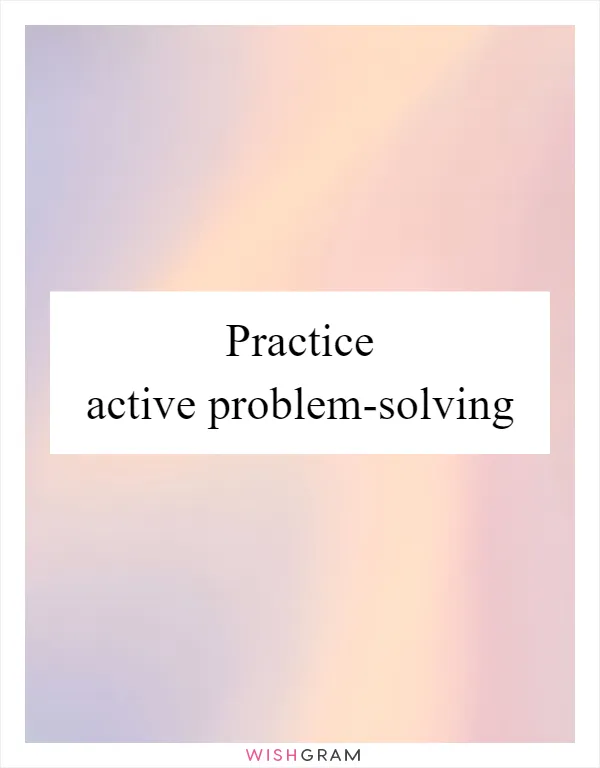Practice active problem-solving
Self-improvement is a lifelong journey that requires dedication, effort, and a proactive approach. One crucial aspect of self-improvement is practicing active problem-solving. By actively engaging in problem-solving, individuals can overcome obstacles, achieve personal growth, and enhance their overall well-being.
Active problem-solving involves taking a proactive stance towards challenges and actively seeking solutions. It requires a mindset that embraces challenges as opportunities for growth rather than obstacles to be avoided. When faced with a problem, it is essential to approach it with a positive attitude and a willingness to explore different perspectives and potential solutions.
To practice active problem-solving, it is crucial to develop effective problem-solving skills. These skills include critical thinking, creativity, decision-making, and resilience. Critical thinking allows individuals to analyze problems objectively, identify underlying causes, and evaluate potential solutions. Creativity helps in generating innovative ideas and thinking outside the box. Decision-making skills enable individuals to make informed choices among various alternatives. Lastly, resilience helps individuals bounce back from setbacks and persevere in finding solutions.
One effective strategy for active problem-solving is breaking down complex problems into smaller, manageable parts. By dividing a problem into smaller components, individuals can focus on solving each part individually, making the overall problem more approachable. This approach also allows for a step-by-step evaluation of progress, providing a sense of accomplishment and motivation along the way.
Another important aspect of active problem-solving is seeking support and guidance when needed. It is essential to recognize that no one has all the answers, and seeking help from others can provide valuable insights and perspectives. This can be done by reaching out to mentors, seeking advice from experts, or collaborating with peers who may have faced similar challenges.
Furthermore, active problem-solving involves a willingness to learn from failures and setbacks. It is important to view failures as learning opportunities rather than personal shortcomings. By reflecting on what went wrong, individuals can gain valuable insights and adjust their approach accordingly. This resilience and adaptability are key to continuous self-improvement.
In the context of self-improvement, practicing active problem-solving can have numerous benefits. It enables individuals to overcome personal obstacles, such as negative habits or limiting beliefs, and work towards personal growth. By actively seeking solutions, individuals can enhance their skills, knowledge, and abilities, leading to increased self-confidence and a sense of achievement.
Moreover, active problem-solving fosters a proactive mindset, empowering individuals to take control of their lives and make positive changes. It encourages individuals to set goals, develop action plans, and persistently work towards their aspirations. This proactive approach not only facilitates self-improvement but also enhances overall well-being and satisfaction.
